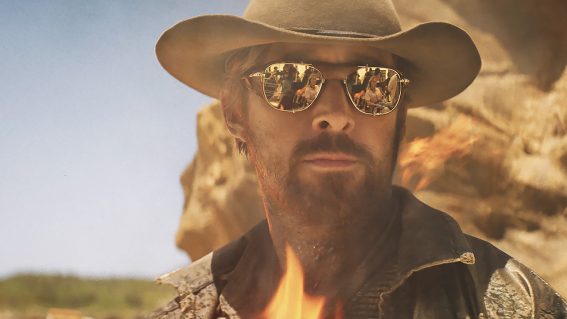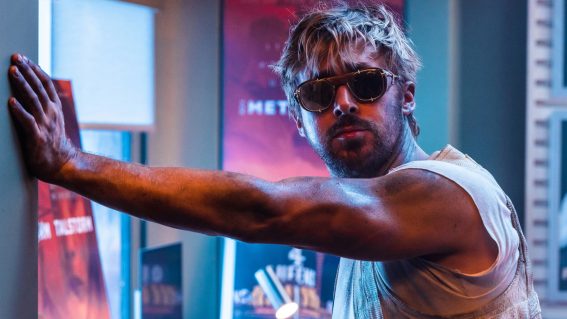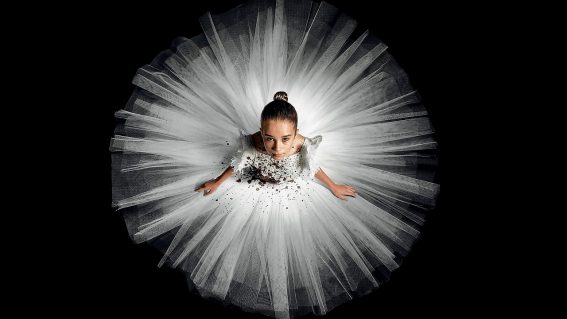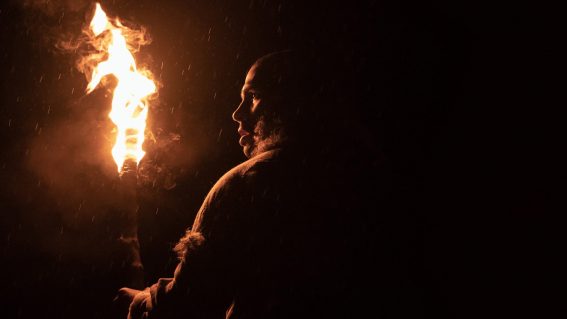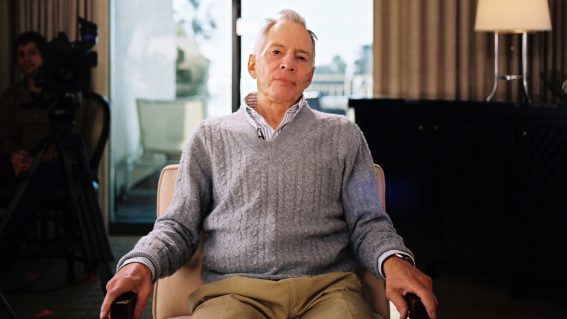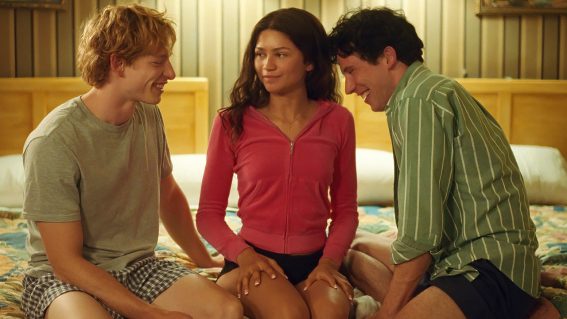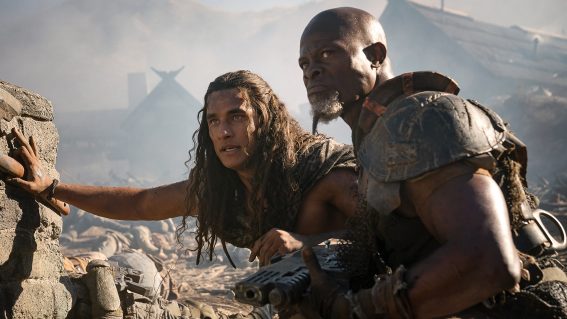Timestalker marks the triumphant return of Alice Lowe’s direction, deadpan humour, and creative genius
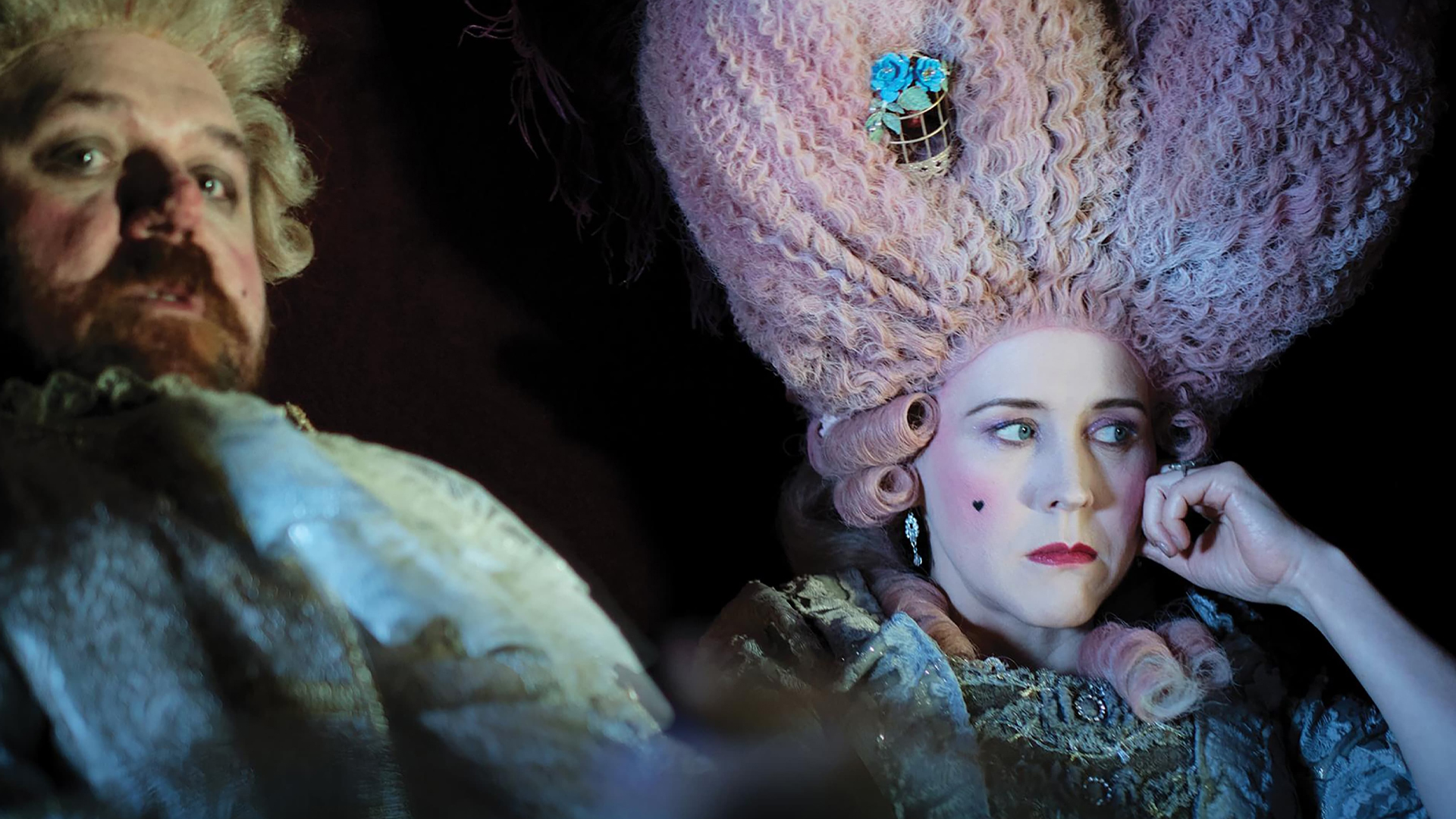
Make a note to see this one in the future – Alice Lowe’s time-jumping comedy Timestalker premiered at SXSW 2024, and you’ll get the chance to see it… some time. Like Fatima Sheriff, you’re likely to be impressed.
Hop, skip, and jumping over centuries, Timestalker follows the doomed lives of Agnes (Alice Lowe), just a girl, standing in front of a boy, destined to die gruesomely whenever she gets close to him. As she is reincarnated and remembers every past life, her beloved Alex (Aneurin Barnard) gets increasingly baffled and freaked out by her insistence that their fates are intertwined.
This is an excellent premise from the mind of Alice Lowe, best known for her black comedy Prevenge in which a pregnant woman believes her foetus is commanding her to commit murder. Six years in the making, and filmed over just 22 days in Wales, Lowe writes, stars and directs once again, this time twisting soulmate-ism with her trademark cynicism.
Almost like a video game, in which an enormous pixelated heart signifies the start of the game and a red cardinal flies through each chapter (This is How You Lose the Time War anyone?), every time Agnes locks eyes with her beloved, she begins her doomed mission to fall in love and is randomly respawned into a fun new era of period costumes and familiar faces. Helped by Jacob Anderson, hindered by Nick Frost, and loved by Tanya Lee Reynolds, each of these actors distinctively makes the most of their time in orbit around Agnes, and succinctly spectate her hilarious, misguided attempts at romance.
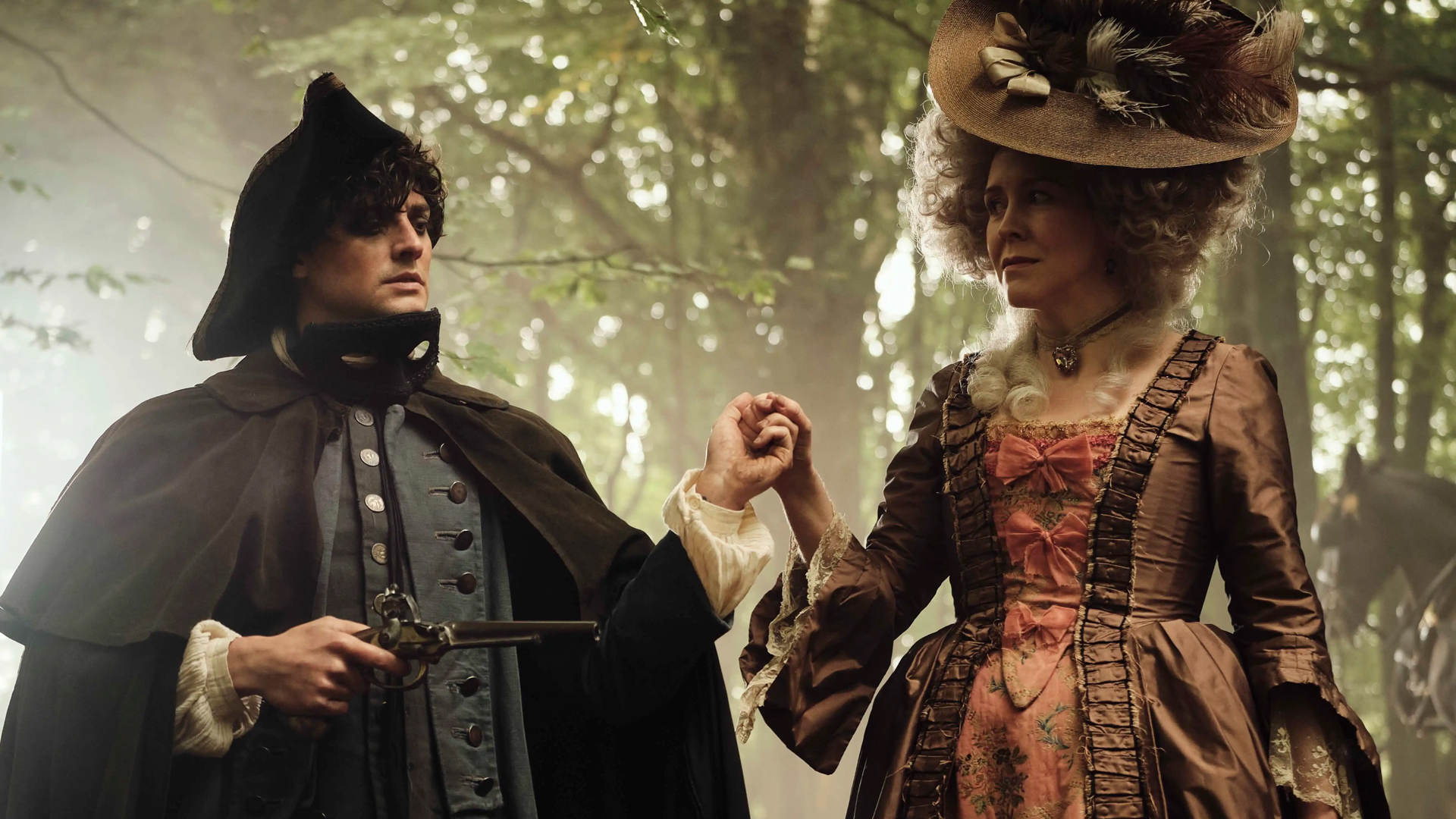
With a sweary, sardonic script that embraces the chaos of every era in the time-honoured British comic tradition of Blackadder or Horrible Histories, Lowe becomes an everywoman, hopeful and hopeless. From a wordless cavewoman, silently accepting her fate, to a lady from the 1970s donning full neon workout gear as she exercises through existential crisis, with several more interludes of costume changes and matching struggles in between, what’s clear is how much fun everyone involved in Timestalker had making the film. Each line delivery is pointed and laugh-out-loud funny, and every scene brings a new layer to Agnes’ desperation.
Particularly in the 1970 iteration of their characters, Lowe plays off the wide-eyed confusion of Barnard, and presents a comic take on De Clerembault’s syndrome (erotomania for those who didn’t suffer through Ian McEwan’s Enduring Love), the obsession cleverly evolving into that of fangirl and pop idol. As Alex becomes Alex Phoenix, an unattainable musician rocking military chic and too much eyeliner, the song Come to Me (a catchy ballad that returns with music video in the end credits) puts words to this unending cycle, and Agnes starts trying to find a way to break free.
Who among us hasn’t been humiliated for love? Deeply entertaining and relatable, Timestalker is a testament to indie filmmaking and original storytelling and is yet another winning passion project from Alice Lowe, who shows off her range and makes the most of her kooky premise to play dress up and run around after a dashing hero. With a dedicated team all clearly working hard to accomplish these labours of love, the heavily stylised and specific touches to each aspect of this multiverse make the most of every comic and narrative opportunity.


